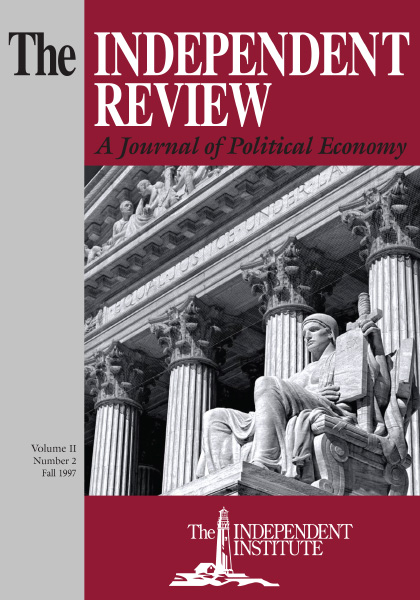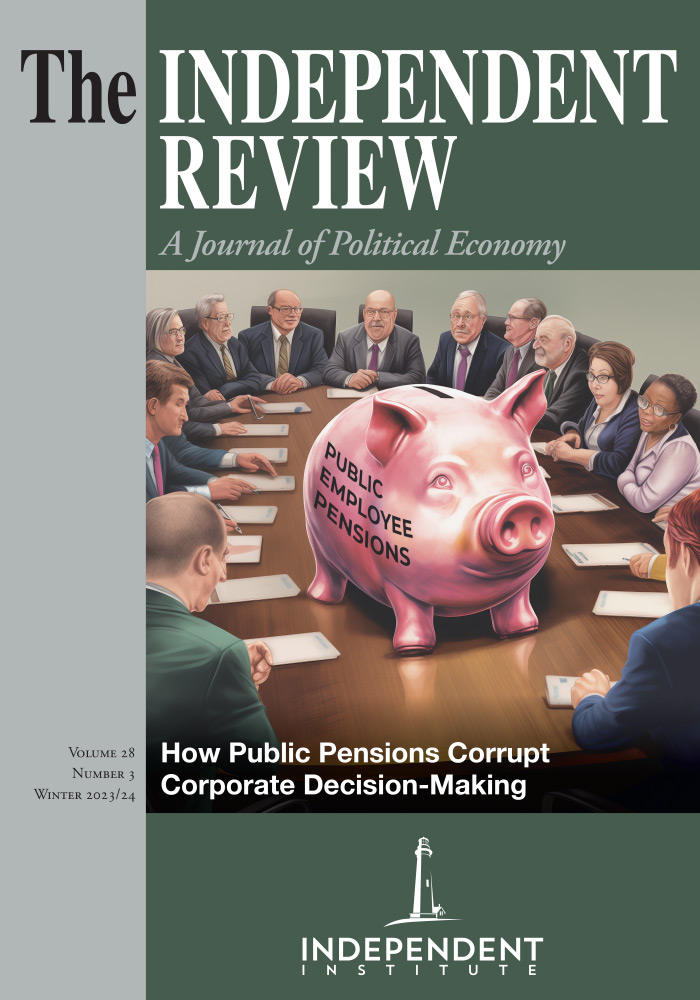Contrary to many historians, the deciding factor in Texas’s annexation was not the colorful personalities involved but the U.S. Constitution, which shaped the incentives and constraints they faced. Although Texas was barely annexed by a simple majority, analysis of the political players’ preference rankings reveals that it could have been annexed less contentiously under a supermajority procedure-which would have made the history of the Lone Star state far less consequential.
Jennifer Roback Morse is Founder and President of the Ruth Institute.
| Other Independent Review articles by Jennifer Roback Morse | |
| Fall 2015 | Conscience and Its Enemies: Confronting the Dogmas of Liberal Secularism |
| Fall 2000 | The Appeal of the Empire of Lies |









